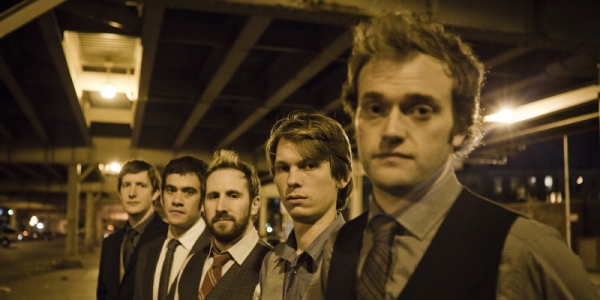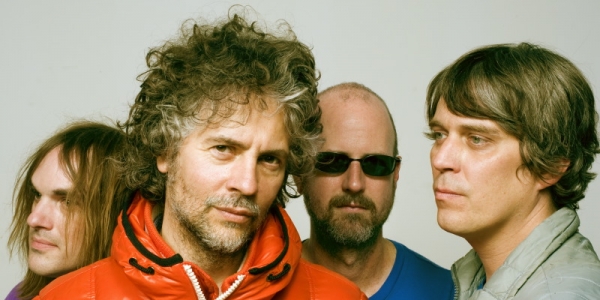Twain and that Huck Finn era is a fitting reference point for you to picture The Punch Brothers’ sound. If you remember all the hullabaloo around the O Brother Where Art Thou soundtrack, a much less archaic, contemporised version of that. Mumford & Sons without the rock pretentions, Bon Iver with fun added. Look up their song This Girl or Google a live performance with Steve Martin (yes THAT Steve Martin) for a complete picture. The kind of band that are likely to be in bowties or wearing vests with a ’kerchief jutting out of a top pocket on their album cover.
Eldridge came from a folk music house, so maybe that is how they dressed too. “Music for me, was the most natural thing in the world growing up,” he says. “My dad is a musician, my mom is a musician, they are both banjo players actually, my brother is a musician, my grandparents met each other because their big thing was a love of classical music. So my family is one of musicians and music lovers. Being so surrounded by it, singing became as natural as talking for me as a little kid.”
The Punch Brothers are something of a progression for Eldridge, he left a band he helped form for the chance to grow as a musician. “I love The String Dusters, the band I started right out of college with some of my best-friends and favourite musicians,” he says explaining the decision to move on. “But The Punch Brothers offered me an opportunity to explore some music along with some other musicians who were further along a path that I knew very little about. It just seemed like an area I really loved and was curious about, so I followed that. It was sad leaving the Dusters, I miss those guys and that music.” It is strange to hear a musician say it, but makes perfect sense, like a career move really, why should bands be any different? At least that is what I took away from the movie That Thing You Do. “Ultimately it provided me with an opportunity to go learn things I really would have never gotten to otherwise,” he continues “The band has evolved since day one. We started out doing a high-concept classical record, music that was composed with the structural rigor of classical music but executed on bluegrass instrumentation. The one after that was weird, dense, art-music songs. This recent one is a lot more distilled, I think we were all listening to a lot more rock music in the two years leading up to this record. It has been a steady evolution. It is hard to define what the music actually is, even giving you those labels, it’s tough because I don’t feel they are necessarily super accurate, it’s just it is hard to talk about music without actually hearing it.”
So best focus on what I do know, The Punch Brothers have the instrumentation of a bluegrass band: banjo, mandolin, fiddle, bass and guitar. “We try and take the music we love the most, the most meaningful to us, that gets under our skin and in our ears, makes us unable to think about anything else, and try and figure out why it does that,” Eldridge says by way of explaining the band’s mission statement. “Why is it that we love it so much? What makes it tick? We deconstruct these ideas and build them into our music. Everybody in the band, and I don’t say this in an insincere way at all, they are some of the best musicians in the world, my dream band mates. Chris Thile, the most well known guy in the band, on mandolin, is an utterly brilliant musician, unbelievable instrumentalist, a visionary guy. Noam Pikelny (banjo) is the most surprising, tasteful improviser you will ever hear. Gabe Witcher (fiddle) has the deepest connection to funky, American music and high-minded music – an interesting combination of those two things. Paul Kowert is as good a musician as you will find.” Together they are really something, a new version of blue grass, a version that sounds alive, like someone is living in it and with it. It’s not static, old and dusty, it breathes. “It is really important that it is engaging for both us and the audience, everybody has a great time that way,” he says. “Live is really where we are most comfortable, we can stretch out a bit. We all grew up improvising, so in a live situation, we get to live in the moment. It’s cool to have the band existing in the same moment together with the audience. That is something we all live for.”
BY JACK FRANKLIN

